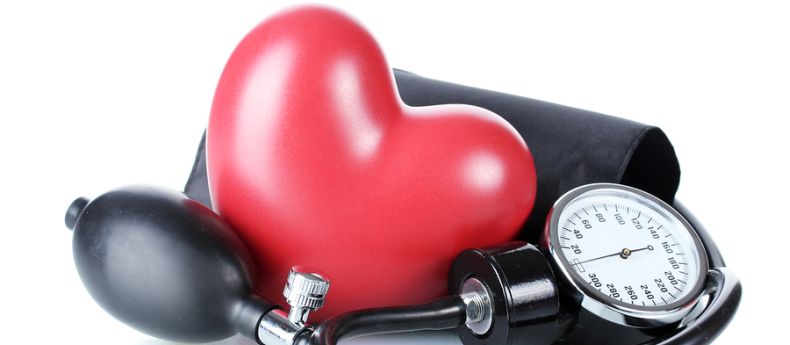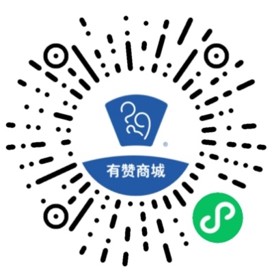
Do I Have High Blood Pressure? Here’s Why You Should Know
Called the “silent killer” for its surprising lack of symptoms, hypertension, or high blood pressure, is a chronic disease can slowly cause major damage to your body if not caught and controlled early. According to the American Heart Association, one-third of adult Americans will suffer from this condition during their lifetime, and hundreds of millions of people in China are affected.
This guide to hypertension can help lead you through understanding—and managing—your high blood pressure.
What is hypertension?
Hypertension means having blood pressure that is higher than normal. Blood pressure is the force of your blood on your blood vessel walls, enabling blood to pump throughout your body. When the force is too strong, you have high blood pressure, or hypertension. Uncontrolled hypertension can lead to serious health problems such as stroke, heart attack, or kidney failure.
How do I know if I have hypertension?
Hypertension is diagnosed by taking your blood pressure (BP). There are two numbers. The higher number, or systolic blood pressure (SBP), measures the pressure when your heart beats. The lower number, or diastolic pressure (DBP), measures the pressure between beats.
- Normal blood pressure: BP below 120/80 (Both SBP and DBP are below their target).
- Hypertension: BP 140/90 or higher (Either SBP or DBP is or above their target).
- Pre-hypertension: If BP falls between normal BP and hypertension levels, you could be at risk for developing hypertension in the near future.
Can I measure at home?
Tracking your blood pressure is a good way to stay on top of your hypertension. Here are some tips for at-home blood pressure monitoring.
- Measure from the upper arm using a standard device.
- Be seated, with your back and arm supported and uncrossed legs. Don’t talk.
- Measure your blood pressure from both of your arms, and always use the arm with higher reading.
- Take two readings, at least a minute apart, in the morning and the evening.
- Keep a good record, and bring it to your doctor each time you visit
What are the different types of hypertension?
There are two types of high blood pressure: primary and secondary hypertension. The vast majority of hypertension patients have primary, or essential, hypertension. The cause of primary hypertension remains unknown to date, but many physicians believe that various genetic and environmental factors play a role. Primary hypertension patients require long term treatment. A smaller fraction of hypertensive patients have secondary hypertension, which is caused by specific diseases that can raise blood pressure. These diseases include certain kidney diseases, cardiovascular diseases, and endocrine disorders Once such disease is identified and treated, secondary hypertension is usually cured without need to continue blood pressure treatment. Some medications including decongestants, cold medicines, birth control pills, and certain pain killers can raise your blood pressure, so it’s important to monitor your blood pressure or check with your doctor first before taking new medications if you have hypertension
I don’t have any symptoms. Can I still have hypertension?
Most people do not have any symptoms from hypertension. Only a small number of people may develop symptoms such as headaches or dizziness when their blood pressure is seriously elevated. While not showing any symptoms in most people, hypertension can gradually damage your body over time and ultimately cause serious complications such as stroke, heart attack and kidney failure—giving hypertension the nickname “The Silent Killer.” Because hypertension damage happens gradually over a period of time, lowering your blood pressure sooner leads to a lower chance of serious complications.
What is my treatment goal?
If you have hypertension, your minimal goal should be to lower your blood pressure to below 140/90. However, if you have other health conditions such as heart disease, diabetes, or kidney disease, your goal may be even lower than this ratio. Be sure to ask your doctor about and know your target blood pressure.
Non-drug treatment
Regardless how high your blood pressure may be, you should make lifestyle changes as a means of treatment. If your blood pressure is not seriously high, making simple lifestyle changes may be all you need to treat your hypertension. That means:
- Get more cardio exercise
- Maintain a healthy weight
- Limit salt intake
- Limit alcohol
- Eat more fruits, vegetables, grains, and beans and less fat
- Manage your stress
- Stop smoking (While this will not lower blood pressure, it will protects your heart, brain, and kidneys which are at risk if you have hypertension.)
Drug treatment
There are many medications to choose from to lower your blood pressure. It is very common to need more than one medication to control your hypertension. Most patients need to take blood pressure medication indefinitely; therefore, it’s important to continue taking your medications, unless instructed first by your physician. Common medications for hypertension include:
- Calcium channel blockers relax the muscles around your arteries, making it easier for your heart to pump blood. Amlodipine is an example of a calcium channel blocker.
- Angiotensin converting enzyme (ACE) inhibitors and angiotensin receptor blockers (ARB) work by increasing the supply of blood and oxygen to the organs (heart, brain, and kidneys). Lisinopril and losartan are examples of this type of medication. ACE and ARB should not be taken by women who are trying to get pregnant or are at risk for pregnancy, because they can cause birth defects.
- Diuretics work in the kidneys by helping your body get rid of extra water and salt. Having extra fluid and salt can contribute to high blood pressure. Hydrochlorothiazide (HCTZ) and chlorthalidone are examples of diuretics.
- Combination tablets such as prinzide and hyzaar that contain an ACE inhibitor or ARB and a diuretic reduce the number of pills you need.
- Beta blockers relax the heart muscle and slow down your heart rate. This reduces the work your heart is doing, allowing it to pump blood more easily. Atenolol and metoprolol are examples of beta blockers.
My takeaway message
Hypertension is a serious chronic health condition—but there are many ways to reduce and control high blood pressure. Most people do not have any symptoms while the condition causes progressive damage to your body over time. Treatment may include lifestyle change and medication, and should be initiated without delay. Uncontrolled hypertension can lead to serious health problems such as stroke, heart attack, and kidney failure. If your blood pressure is high, consult your physician as soon as possible to discuss a treatment plan that is right for you.





